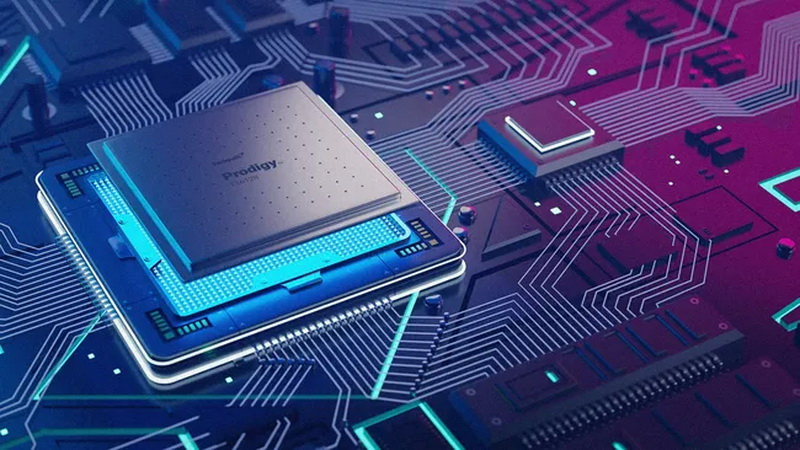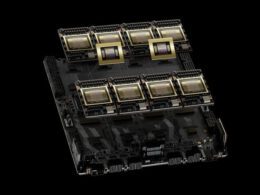Tachyum, a technology company, has revealed plans to begin mass production of its universal Prodigy processor in 2024. The new chip brings together computational and graphical cores, along with a Tensor Processing Unit (TPU), potentially rivaling NVIDIA’s most powerful computational accelerators.
The 5-nanometer, 192-core chip claims to offer 4.5 times higher performance than any other processor designed for cloud compute loads. Tachyum alleges it’s up to three times faster than any Graphics Processing Unit (GPU) for high-performance computing and six times more energy-efficient than specialized GPUs for AI tasks.
The Prodigy Universal Processor was initially announced by Tachyum in 2022. Its intended function is to transform specialized data centers into universal compute centers capable of providing the necessary compute power and efficiency for a variety of AI loads. In December 2023, the company released a video demonstrating Prodigy’s ability to emulate operations in x86-compatible applications. However, the actual Prodigy processors only presently exist on paper and as an FPGA-emulated platform with a few cores.
“The successes achieved in adjusting our product release plan have brought us to 2024, full of anticipation, as we move towards the launch of mass production of Prodigy and the realization of a multi-billion dollar sales channel. We look forward to fulfilling our promise and commitment to transform conventional data processing centers into universal computing centers in the near future,” stated Radoslav Danilak, CEO and founder of Tachyum.
The Prodigy Universal Processor’s architecture allows it to dynamically switch between compute clusters, eliminating the requirement for costly, specialized hardware for individual AI load types. At least, this is what the company’s recent press release states.
According to the release, a single $23,000 Prodigy Universal Processor can match the performance of 52 specialized NVIDIA H200 accelerators, considered among the best in the market, in AI training tasks. The total cost of this quantity of GPUs in seven Supermicro GPU servers would equal $2,349,028. This amounts to a cost that is 100 times that of a single system with a Prodigy Universal Processor and 2 terabytes of DDR5 RAM.
Tachyum also revealed plans for a more advanced universal Prodigy 2 processor. This planned next-generation release will utilize a 3-nanometer process and support PCIe 6.0 and CXL interfaces, with onboard High-Bandwidth Memory 3 (HBM3). The projected launch date is somewhere around 2026.





